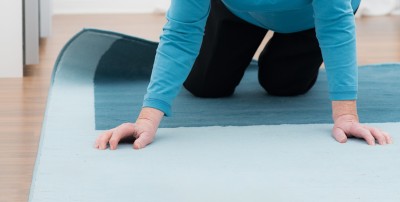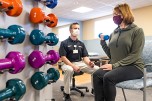
It’s no surprise that falling becomes more common as you age. In fact, one in every four elder adults suffers injuries from falls each year. However, according to physical therapist Sandy Tremblay from Lehigh Valley Health Network, you have the power to reduce your risk for falls. “Doing regular physical activities that include endurance, muscle strength and balance activities reduces the risk for fall-related injuries,” she says.

